Results
-
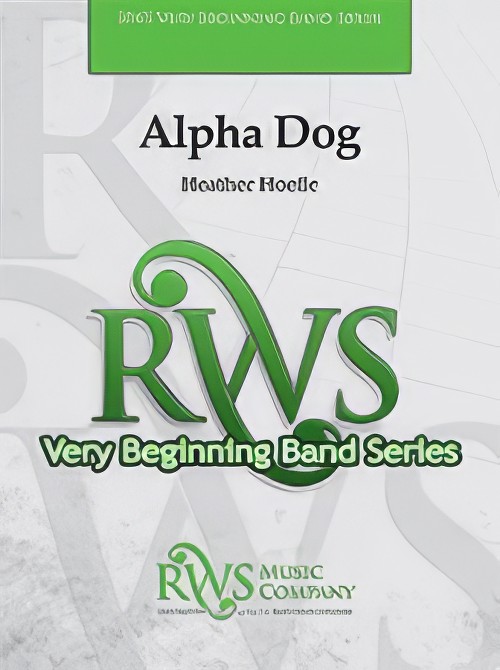 £50.00
£50.00Alpha Dog (Concert Band - Score and Parts) - Hoefle, Heather
A fun and energetic work for the beginning band that your students will love! The infectious groove, hand clapping, and driving drum break keep this spirited piece driving all the way to the end. Using only the first six notes introduced in most band methods, this piece from composer and master teacher Heather Hoefle is an excellent choice for a school assembly, parent meeting, pep rally or concert closer! Duration: 1.45
Estimated dispatch 7-14 working days
-
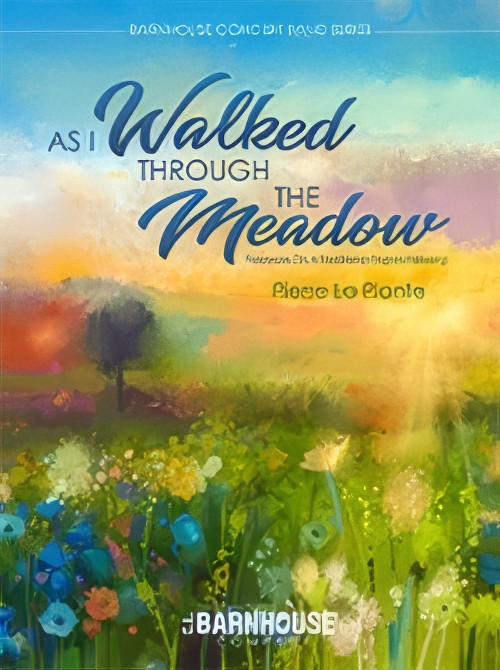 £79.00
£79.00As I Walked Through the Meadow (Concert Band - Score and Parts) - La Plante, Pierre
Pastorale on a Traditional English Folksong. Pierre La Plante is well-known for his mastery at creating concert band settings of folk tunes with Grainger-esque style. "As I Walked Through The Meadow" is a pastorale setting of a traditional English folk tune that, with careful attention to intonation and expressive playing, will give your ensemble's musicianship a chance to shine. The middle section is a variation on the main theme which returns, builds to a climax and ends quietly in a somewhat wistful manner. A beautiful choice for concert or contest change of pace. Outstanding music for wind band! Duration: 4.30
Estimated dispatch 7-14 working days
-
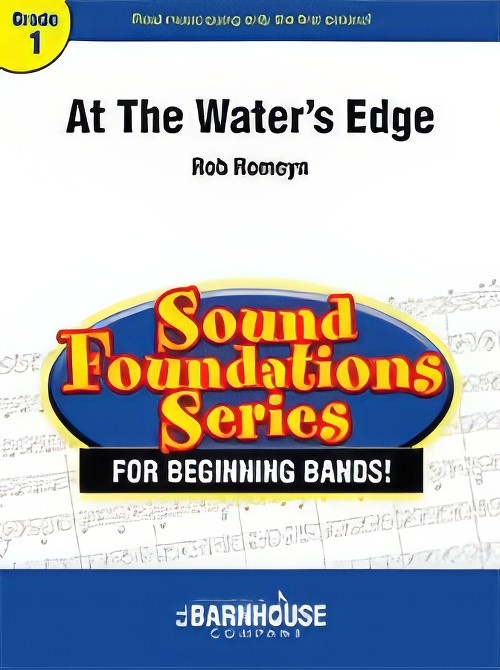 £45.00
£45.00At the Water's Edge (Concert Band - Score and Parts) - Romeyn, Rob
Simple and beautiful, "At the Water's Edge" is beginning band lyric music of the highest quality! After a short introduction, a beautiful and flowing melody is introduced by the flutes. Changes in texture, countermelodies and melodic presentation grow as the music progresses. Teaching opportunities abound to reinforce phrasing, blend and dynamic shaping. A heartfelt and sensitive addition to any young band concert or festival performance that will leave your audience breathless. Simply gorgeous! Duration: 2.00
Estimated dispatch 7-14 working days
-
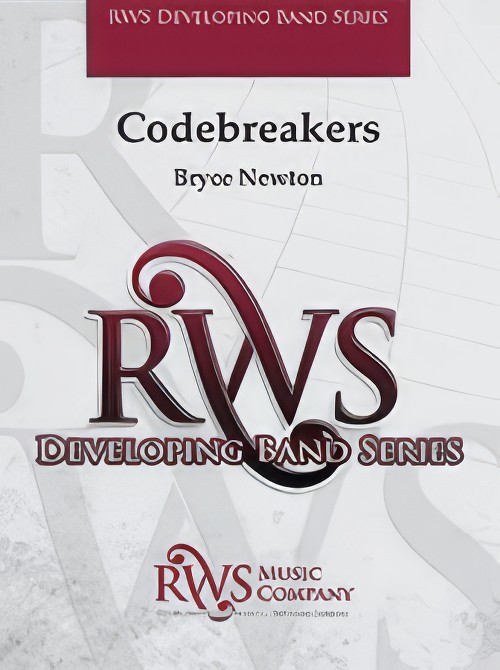 £65.00
£65.00Codebreakers (Concert Band - Score and Parts) - Newton, Bryce
Bryce Newton has composed this work for the developing band to commemorate the World War II code-breaking efforts by the NCR Company in Dayton, Ohio. This stirring composition evokes a sense of mystery and excitement from start to finish. Written well within the technical abilities of the developing band, this powerful composition will capture the imagination of your students while also providing quality teaching material. An excellent choice for your concert or festival performance. Duration: 3.15
Estimated dispatch 7-14 working days
-
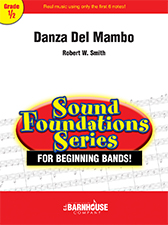 £45.00
£45.00Danza Del Mambo (Concert Band - Score and Parts) - Smith, Robert W.
Using only the first six notes introduced in most band methods, Robert W. Smith gives us "Danza Del Mambo" for beginning band. Written in the classic Cuban dance style, this mambo features the percussion section using standard Latin percussion instruments such as claves, maracas, guiro and agogo bells. The flowing melodic line over the infectious Latin mambo groove will have your musicians moving and the audience dancing in the aisles! Duration: 1.40
Estimated dispatch 7-14 working days
-
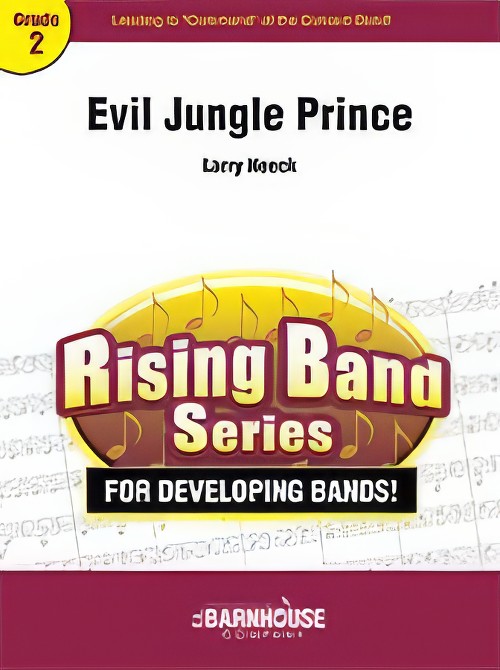 £49.00
£49.00Evil Jungle Prince (Concert Band - Score and Parts) - Neeck, Larry
Evil Jungle Prince is a fascinating and creative original work for young band, whose dramatic themes and exotic colors evoke the savage mystery of a steamy, jungle kingdom. Pulsating rhythms propel bold and colorful themes, with unique percussion scoring providing interest and intensity. Take your band to the next level, with this highly approachable, yet mature-sounding piece. Unique! Duration: 2.20
Estimated dispatch 7-14 working days
-
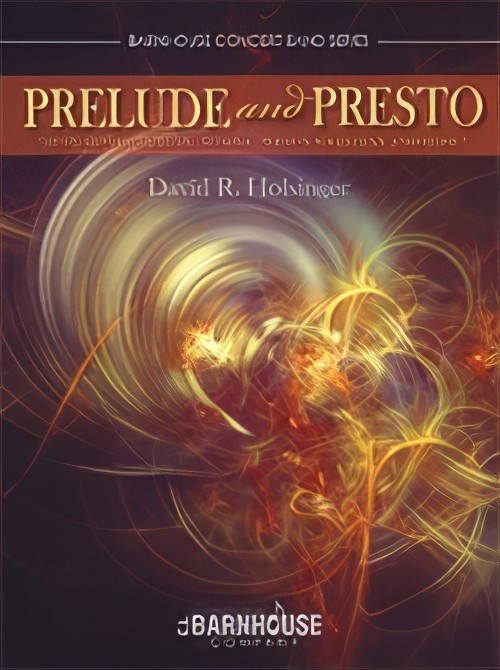 £125.00
£125.00Prelude and Presto (Concert Band - Score and Parts) - Holsinger, David R.
David R. Holsinger returns to the band world with this first major composition written since his 2015 stroke. Commissioned to pay homage to Phi Beta Mu Band Fraternity, it contains all those Holsinger compositional fingerprints we enjoy playing. The plaintive opening prelude, the poly-chordal texture, followed by the robust presto we expect from this composer. Vigorous asymmetrical melodies, jubilant rhythms, fluctuating accents, poly-lineal textures, multi-layered, and electrifying excitement to the end! Duration: 7.00
Estimated dispatch 7-14 working days
-
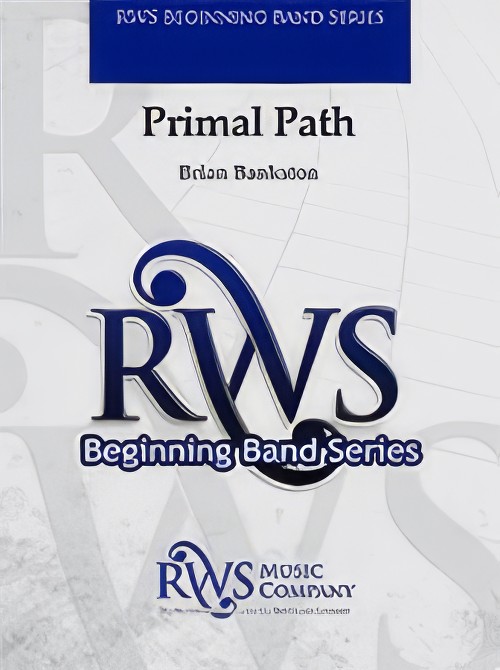 £55.00
£55.00Primal Path (Concert Band - Score and Parts) - Bankston, Brian
Feature your percussion section with this exciting composition for beginning band by Brian Bankston. Repeated rhythmic figures for timpani, tom-toms, shakers, clave, bass drum and crash cymbals create a powerful musical statement that supports the dramatic yet achievable wind parts. Utilizing the first six notes with basic rhythms, this piece will have your band feeling confident and ready to play in any performance setting. Duration: 1.45
Estimated dispatch 7-14 working days
-
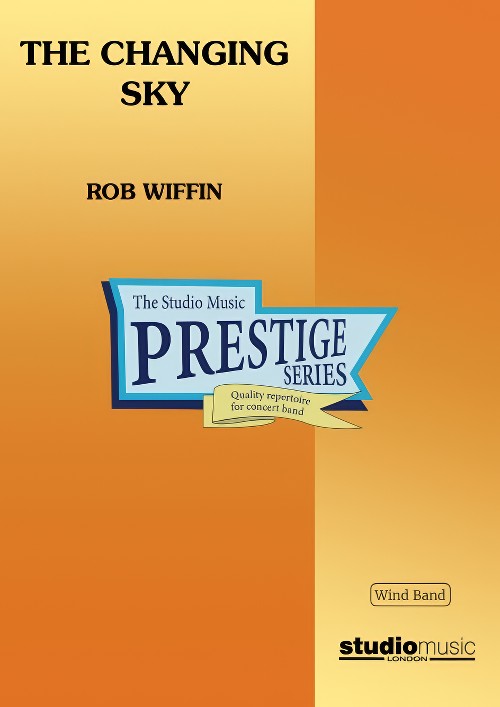 £94.95
£94.95The Changing Sky (Concert Band - Score and Parts) - Wiffin, Rob
This is a dynamic programme piece for a mature wind band , with all players having something to get their teeth into, expertly composed by one of the UK's best wind band writers. It is constructed in ABA form with a beautifully contrasted central movement. Great to play and to listen to!
Estimated dispatch 7-14 working days
-
 £18.95
£18.95The Changing Sky (Concert Band - Score only) - Wiffin, Rob
This is a dynamic programme piece for a mature wind band , with all players having something to get their teeth into, expertly composed by one of the UK's best wind band writers. It is constructed in ABA form with a beautifully contrasted central movement. Great to play and to listen to!
Estimated dispatch 7-14 working days
